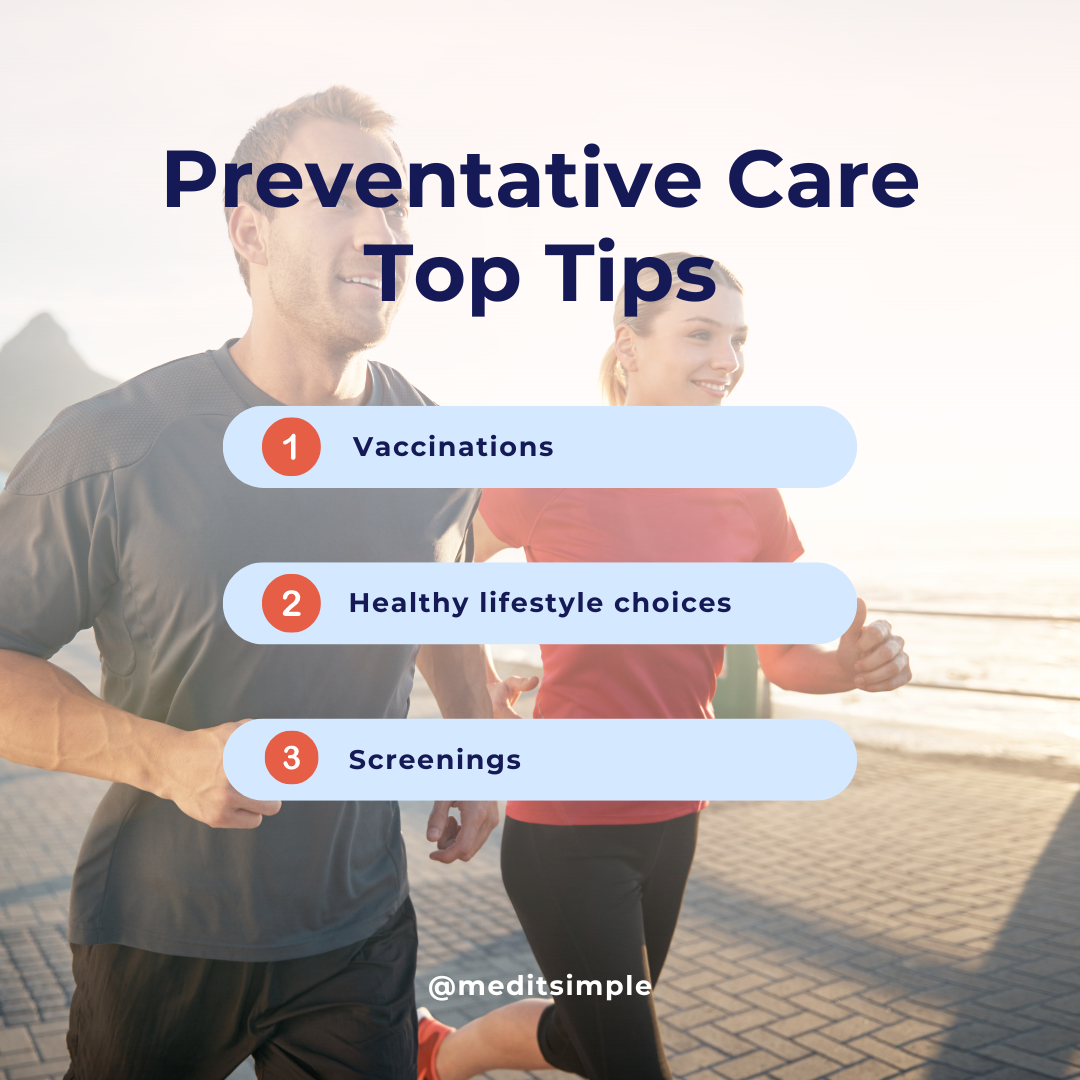As we are in the hustle and bustle of autumn, many of us are wondering what we can do to get through the winter months as healthily as possible. This is where prevention plays an important role. Taking vitamins or thinking about seasonal vaccinations can of course help us to cope better with the coming months. But there’s more to prevention than that. Its benefits can be measured over time, both in terms of our health as individuals, and that of society as a whole. So what’s the latest in preventive care?
What is health prevention?
Health prevention refers to strategies and practices aimed at reducing the risk of illness, injury, and disease before they occur. It encompasses a variety of approaches, including:
- Primary Prevention: Efforts to prevent diseases from occurring in the first place, such as vaccinations, healthy lifestyle choices (like diet and exercise), and public health initiatives.
- Secondary Prevention: Focused on early detection and prompt treatment of diseases to prevent progression. This includes screenings, regular check-ups, and monitoring high-risk individuals.

Vaccinations for preventative care
The NHS publishes a vaccination schedule. Here’s the list of NHS vaccines and when to have them:
https://www.nhs.uk/vaccinations/nhs-vaccinations-and-when-to-have-them/
It’s best to have vaccines on time, but you can still catch up on most vaccines if you miss them. In addition to the vaccines on the NHS list, certain other vaccines may be recommended to avoid many complications.
The chickenpox vaccine is one of them.
Although chickenpox is usually mild, it can be very serious for some people. Certain people who have a higher risk of getting seriously ill from chickenpox. The chickenpox vaccine is recommended to help protect them. These include:
- Pregnant women
- Babies
- Those with a weakened immune system.
Most people can have the chickenpox vaccine if they need it. However, be aware that not all GP surgeries provide it, so you may need to pay for it privately.
Book with a chicken pox specalist on MeditSimpleHealthy lifestyle choices for preventative care
If you want to adopt a healthier lifestyle, you’re spoilt for choice: eat better, exercise or reduce your alcohol consumption. Every year in October, the focus is on giving up smoking. UK-wide health campaign Stoptober is back this October. It encourages and supports smokers to quit for good. Research shows people are up to five times more likely to quit for good if they manage to go smoke-free for 28 days.
There are many resources available online and distributed as part of this campaign. But taking advice from a specialist will give you the best chance of successfully giving up smoking for good.
Book with a specialistScreenings for preventative care
- October is Breast Cancer Awareness month
Around 55,000 women are diagnosed with breast cancer in the UK each year. This number represents a significant portion of all cancer diagnoses in women. It makes breast cancer one of the most common cancers in the UK. Spotting breast cancer early can significantly improve treatment outcomes. It’s essential for women to perform regular breast self-exams and report any changes to their healthcare provider. Routine screenings, such as mammograms, are also crucial for early detection, even in the absence of symptoms.
https://www.nhs.uk/conditions/how-to-check-your-breasts-or-chest/
In the UK, the NHS invites women aged 50–70 for breast cancer screening every three years. However, if you want to have a mammogram before the age of 50 or because you are worried after checking your breasts, you can always book one privately.
Book a mammogram
- Movember
Movember is an annual event involving the growing of moustaches during the month of November. It aims at raising awareness of men’s health issues, such as:
- prostate cancer
- testicular cancer
- men’s suicide
Whether or not you take part, this could be an opportunity to undergo the recommended screening tests. You should also consult a specialist if you have any concerns. If you don’t know who to turn to, visit our centre of excellence for men’s health.
Centre of excellence for men's health Book a prostate screeningPreventative care is crucial for several reasons:
- Early Detection: It helps identify health issues before they become serious, allowing for timely intervention and treatment.
- Cost Savings: Preventive measures can reduce healthcare costs by avoiding expensive treatments for advanced diseases.
- Improved Quality of Life: By preventing diseases, you’ll be able to maintain a higher quality of life.
- Community Health: Widespread preventive practices can lead to healthier populations, reducing the burden on healthcare systems.
- Chronic Disease Management: It focuses on reducing the risk of chronic diseases, such as diabetes and heart disease, which can significantly impact individuals and communities.

